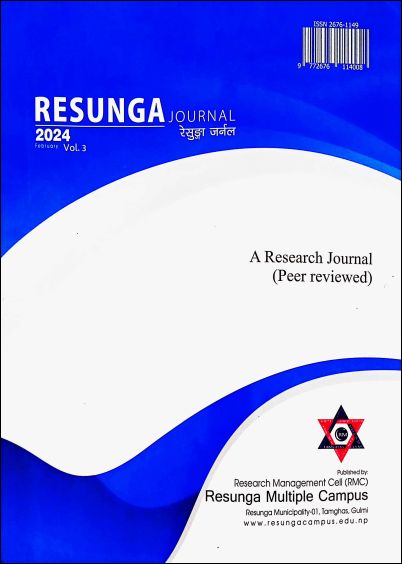A Review on Remittance and its Effect on Human Development in Developing Countries
DOI:
https://doi.org/10.3126/resungaj.v3i1.65880Keywords:
Remittance, Human Development, Developing Nation, Economic Development, PovertyAbstract
As a percentage of its GDP, Nepal is one of the nations that receive the most remittances worldwide. Remittance income in the context of developing countries like Nepal plays a significant role in determining the structure and dynamics of the entire economy. It also has an impact on important aspects of human development, including life expectancy at birth, the average number of years spent in school, and gross national income per person. The human development should be promoted in an economy because human beings are the end in each other without the need for any justification. Nonetheless, the link between remittances and human development in underdeveloped nations has received little research. Remittances also positively affect poverty, inequality, human capital, and life expectancy (Adams, 2011), especially in developing countries. This article reviewed the empirical evidence of ten different research article published in different journals after 2018 onwards to carry out the conclusion regarding the remittance and impact on human development.




